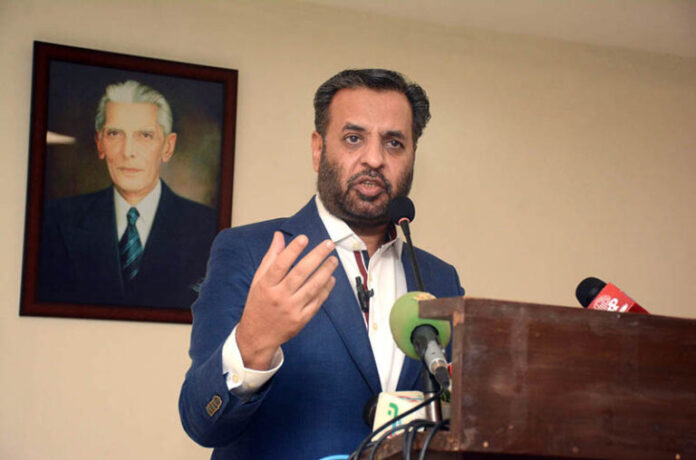- Advertisement -
ISLAMABAD, Apr 9 (APP):Federal Minister for Health, Syed Mustafa Kamal on Wednesday said that the government is committed to reduce the maternal and child mortality rate, improving the country’s health indicators.
Addressing the event held to commemorate World Health Day 2025, organized by World Health Organization (WHO), the minister said that maternal and neonatal mortality is a major concern in Pakistan and termed it as barrier in country’s economic progress.
Mustafa Kamal said, “I assure you every effort will be made to decrease the rate of maternal and neonatal mortality in Pakistan.”
He said that an estimated 10,000 mothers die each year due to pregnancy related causes in Pakistan. He added unfortunately these deaths are preventable as the figure of maternal deaths per 10,000 live births each year is alarming in Pakistan.
Kamal said, “I believe maternal and child mortality ratio is significant obstacle in progress of any country including Pakistan and causing heavy burden on health system of the country. There are different causes of maternal deaths in Pakistan, which will be addressed now to protect precious lives.”
The minister added, around 38 percent children under five in Pakistan are stunted due to malnutrition and other factors.” He added due to medical complications, these children have no role in society as stunted children fail to reach their physical and cognitive potential.
He assured to initiate innovative steps on emergency basis to address the country’s high level of stunting issue. He said that the Prime Minister of Pakistan is giving top priority to health sector in order to give quality health facilities to commonman.
He thanked WHO for ongoing and future collaborations in the healthcare sector and expressed the hope that new steps of the government will bring significant improvements to Pakistan’s healthcare system particularly in provision of integrated health services especially for mother and child health.
He highlighted that under the leadership of Prime Minister Shehbaz Sharif, the government is actively working to enhance healthcare services especially to underserved areas, and the impact of these efforts is already being felt by the public.
He reiterated the government’s commitment to ensuring that doctors and essential medicines are available at people’s doorsteps, making healthcare more accessible for all.
He said that there is a need to pay full attention to the health sector and assured that positive changes will be seen in this sector in the coming days. He said that innovation and positive reforms will be introduced and basic health centers will be activated in a modern and complete manner.
WHO Representative in Pakistan, Dr Dapeng Luo said that to ensure health and prosperity for all, every country needs healthy mothers and newborns. “WHO stands with Pakistan to protect the health of mothers and newborns.”
He asked the international and national partners to urgently invest in reducing maternal and newborn deaths in Pakistan.
He said that every US$ 1 invested in maternal and newborn health is estimated to yield a return of US$ 9 to US$ 20. Spending on maternal and newborn health is an investment in human capital, not a cost, leading to economic development and happier, healthier societies, he added.
He said that in Pakistan, 29 mothers die every day from preventable pregnancy related complications. He added the country also faces severe neonatal mortality, with over 670 infants under one month dying daily while Pakistan also registers more than 190,000 stillbirths annually.
He said that despite these challenges, remarkable progress has been made in recent years in Pakistan. “I extend my gratitude to the government of Pakistan for its commitment in improving the health of mothers and newborns.”
He said that the maternal mortality ratio fell from 276 deaths per 100,000 live births in 2006 to 155 in 2024 according to the latest available estimates. Neonatal mortality has declined from 52 deaths per 1000 live births in 2006 to 37.6 in 2024, and stillbirths fell from 39.8 per 1000 births in 2000 to 27.5 in 2024.
He said that Pakistan, with support from WHO and partners, has also made progress in tackling maternal and neonatal tetanus (MNT) across the country.
He said that WHO will continue to partner with Pakistan and its people to deliver health for all, leaving no one behind, and build a brighter future for the children and grandchildren of the country.

